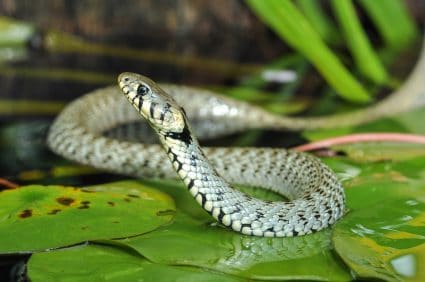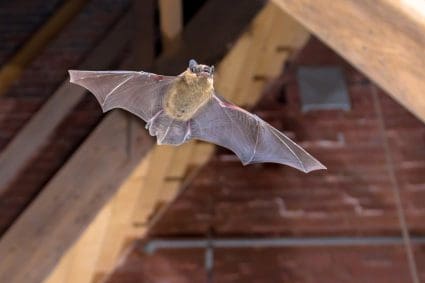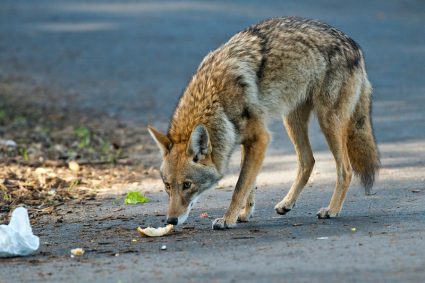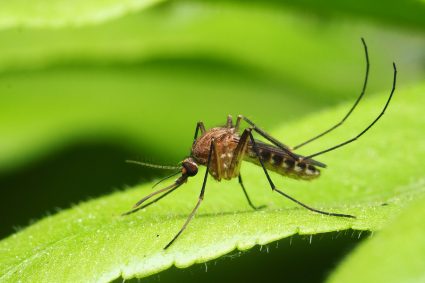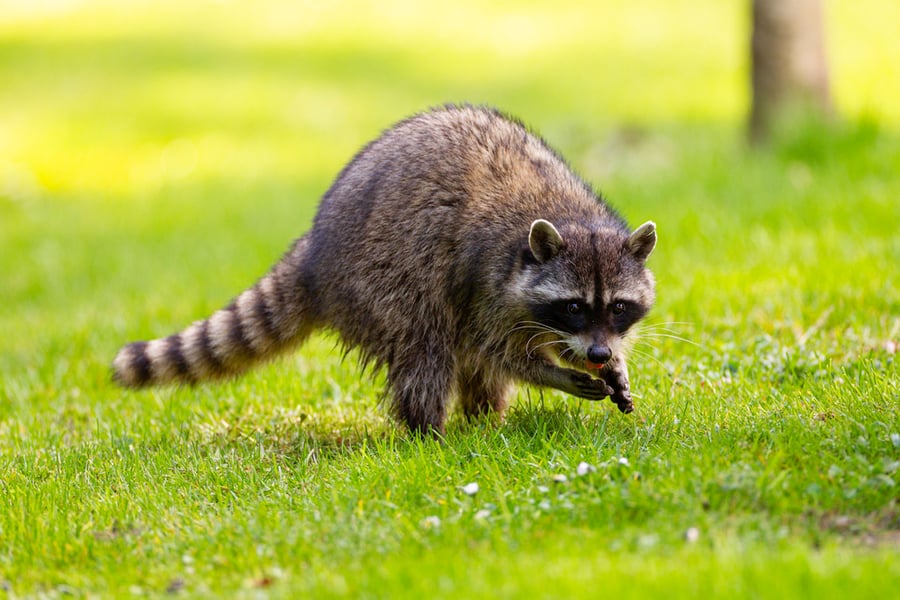
How can I prevent raccoons from consuming my chickens? How can I keep raccoons at bay?
Which repellent works best to keep raccoons away from chickens? Can I permanently get rid of raccoons?
A variety of unpleasant aromas can repel raccoons. They are:
- ammonia
- garlic
- cayenne pepper
- onions
Making sure that a raccoon cannot enter the coop is the best approach to ensure that your chickens are secure from them. You can use a DIY raccoon repellent to spray the outside of your coop.
You can also deter animals from visiting the coop by soaking rags in ammonia and scattering them around the perimeter of your chicken coop.
Raccoons are just as harmful to people as they are to chickens since they are known to carry diseases like rabies.
Predator-proofing your chicken coop will protect your chicken and flock from these cunning carnivores and keep them safe and healthy.
5 Effective Ways To Keep Raccoons Away From Chickens
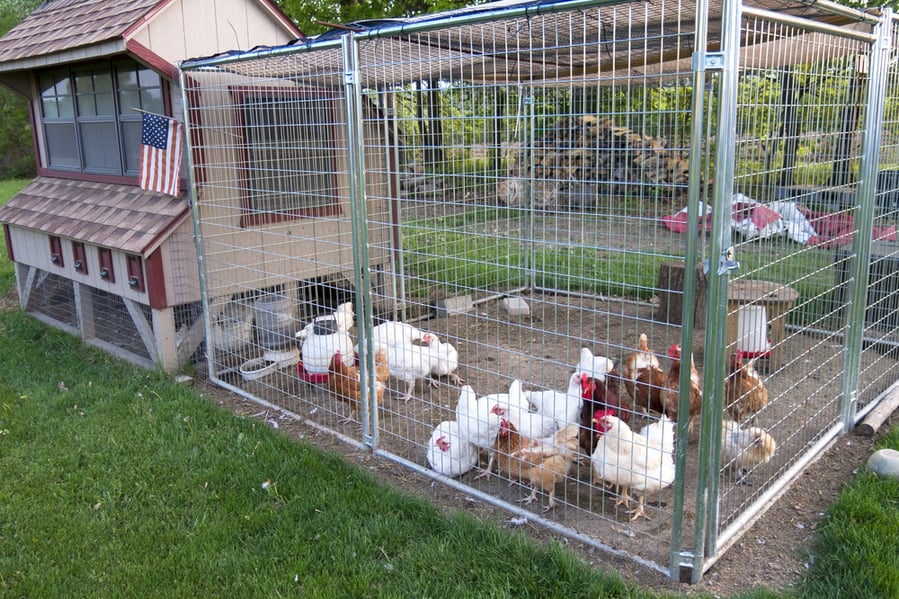
Maintaining a clear line of view that is well-lighted and keeping the area around the coop clear of any potential hiding places will help you safeguard your chicken.
The coop is your chickens’ best line of defense, and it should be sturdy enough. It should help in keeping predators like raccoons away from your flock.
But, it is crucial to exercise extra caution because raccoons are small.
Fortunately, there are practical precautions that deter raccoons and protect the chickens. They are:
1. Make Your Property Raccoon-Unfriendly
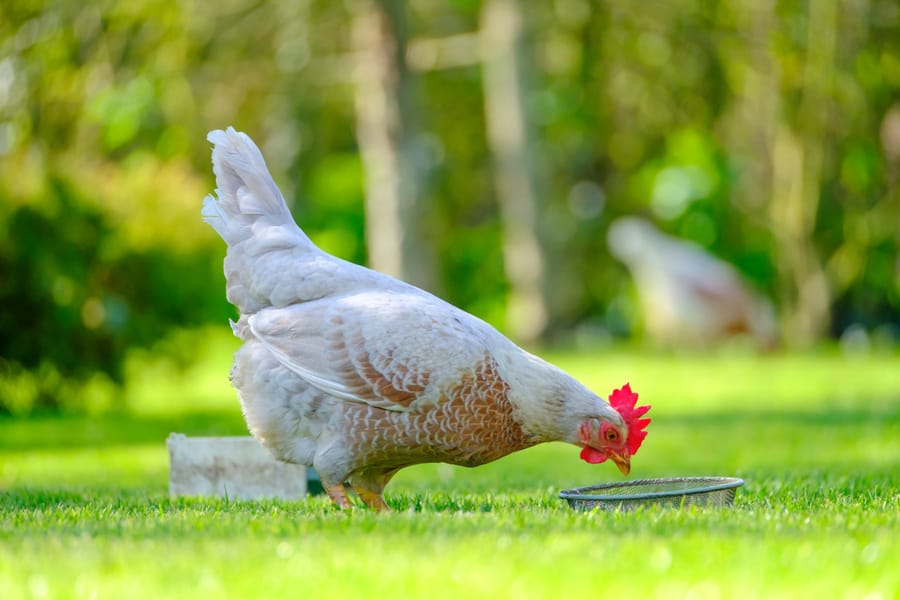
Raccoons like quick meals. As a result, your trash can lids must be tight.
Additionally, feed your pets inside, especially at night. Raccoons are highly olfactory animals.
They may come to inspect and find your chickens if they think they may get a quick meal from your pet’s leftovers.
Keep bird feeders away from them and clear away any seed that may have dropped. Raccoons enjoy seeds a lot.
They will return if they can access your bird feeder or discover seeds there.
Raccoons enjoy climbing. They have no trouble getting to your bird feeder. To get to your feeders, they can balance, leap, and perform nearly any action.
So, like with pet food, you should bring your feeders indoors. Utilizing a raccoon-proof bird feeder is another option.
They prevent larger birds like magpies, raccoons, and squirrels from accessing the bird seed.
2. Maximize the Visibility of Your Coop
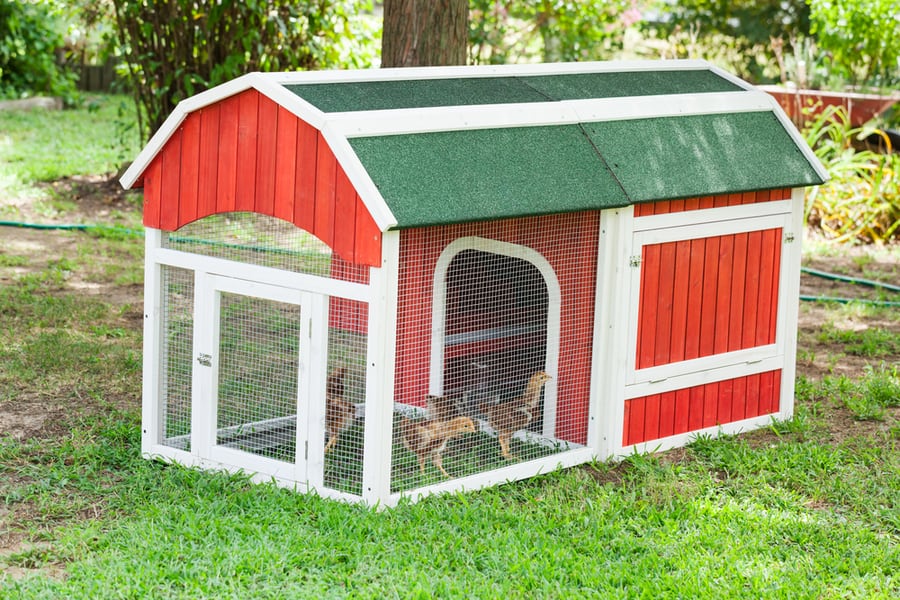
Keep the grass and bushes around your chicken coop trimmed.
It makes it harder for predators to hide close or approach the chicken covertly.
Your chicken coop should be in a spot without any surrounding hedges or bushes.
If not, keep the branches neatly pruned so that light may enter and maintain good visibility.
3. The Coop Should Be Raccoon-Proof
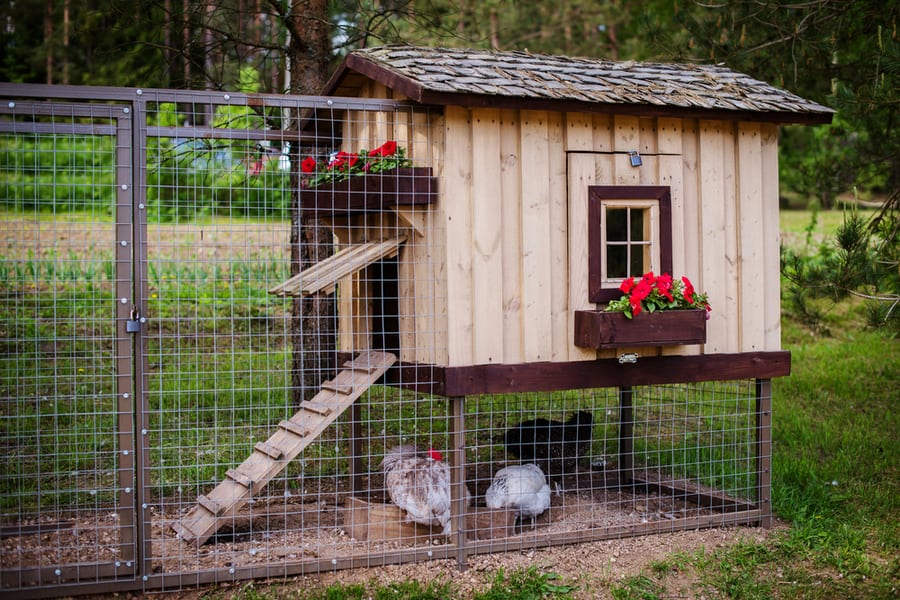
Make sure your chicken coop has raccoon-proof latches on the doors and windows, like a padlock or combination lock.
The raccoons should not be allowed in if the lock requires two steps or more to unlock.
You might also need something substantial like a cinderblock to lean against the door.
Use hardware cloth to cover the windows of the coop and the run.
Your chickens will be kept within by chicken wire, but a determined raccoon can tear it down. Hardware cloth is stronger and more unbreakable.
4. Scare Raccoons Away Using Lights

Due to their nocturnal nature, raccoons typically sleep during the day.
Using a motion sensor light or strobe light at night may deter them.
Make sure the light you choose can detect small animals because many security lights only frighten humans and larger animals.
Additionally, look at how precisely and in what direction the light will scare the raccoons.
5. Utilize a Trained Dog as a Guard
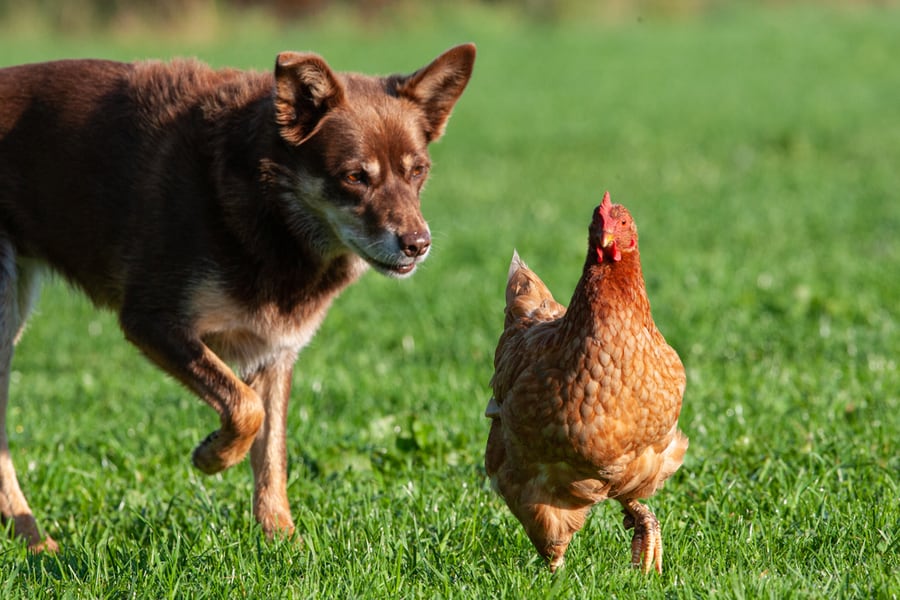
You can use a trained dog to deter predators, such as raccoons, from your property.
Dogs have been trusted to guard humans, property, and other animals for hundreds of years.
Additionally, raccoons dislike the smell of dogs. If the dog has been taught not to kill the chickens, it can scare the raccoon away.
Ensure you check whether your dog enjoys chickens or has been taught to behave with them. If it has not received the correct training, the dog can end up slaughtering the chickens for fun.
Certain breeds are more effective at safeguarding chickens than other breeds.
Conclusion
Raccoons are intelligent and have incredibly dexterous fingers. They can climb, dig, or undo a latch to access what they want. That makes repelling raccoons challenging.
Fortunately, the strategies described above will assist you in keeping raccoons away from your chickens.
You should watch out for raccoons just like any other potential predators.
Frequently Asked Questions
During the Day, Do Raccoons Kill Chickens?
Even though they prefer the dark, raccoons have been known to wander outside during the day for a quick meal, especially in urban areas where they are accustomed to loud noises.
Be wary because rabid raccoons sometimes emerge in broad daylight.
What Odor Will Deter Raccoons?
A raccoon’s sense of smell is irritated by spices like cinnamon, black pepper, or cayenne pepper, which forces it to move to a more hospitable place.
You may make a natural raccoon repellent by heating water with cayenne pepper and onion. Additionally, you can add hot sauce to the mixture.
When Are Raccoons Most Active at Night?
Raccoons enjoy staying up late. They typically spend the day sleeping and the night scavenging for food.
Raccoons leave their dens shortly after dusk. They immediately seek out the closest source of food.


